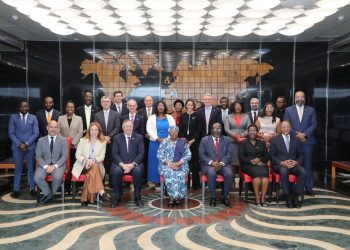
Namibia’s insurance industry lacks the financial capacity to underwrite risks in the emerging oil and gas sector and is now looking to regional partners to share the burden through a cross-border risk pool.
Officials have raised concerns that a single major loss in the sector could cripple local insurers and have widespread economic consequences unless broader coverage is secured.
Erich Gariseb, General Manager of Insurance and Medical Aid Funds at the Namibia Financial Institutions Supervisory Authority (NAMFISA), said the domestic market does not have the regulatory authority or financial depth to cover major energy projects.
“Many of the risks that we are seeing with regards to the capital-intensive industries are somehow retroceded, or even directly matured with world majors. As such, we don’t have any major insurer that’s regulated in Namibia, and that leaves us with very little leverage in terms of policy or regulatory intervention,” he said.
Gariseb added that Namibia is also being affected by shifts in global reinsurance, particularly around fossil fuels, as providers face increasing pressure to meet environmental, social, and governance (ESG) standards.
“We are noticing quite a retreat of global reinsurance when it comes to company things of industries. This is happening for various reasons. Capital providers are having their ESG objectives, regulators are putting pressure on them for disclosure, and there is increasing stakeholder activism,” he said.
He warned that a major offshore incident, such as the loss of an oil rig, could have a severe and lasting impact on the national economy.
“If an oil rig valued at around N$4 billion falls into the ocean, to pay out would severely dent our national balance sheet. I think the country will feel it across the board. That kind of exposure is simply beyond what the local insurance market can handle,” Gariseb said.
Patty Karuaihe-Martin, Managing Director of the Namibia National Reinsurance Corporation (NamibRe), confirmed that Namibia is studying regional models that could help spread the risk.
“Countries like Uganda and Ghana have created insurance pools where each insurer takes a small share of the risk. They then engage international partners and brokers to cover the rest. It’s a collaborative model that allows the sector to participate without being overexposed,” she said.
She added that the discovery of oil should be a catalyst for skills development and sector growth.
“The insurance market should see the new oil as a defining element and a chance to develop new knowledge and skillsets amongst practitioners. It is an opportunity that we must seize. We have already started investing in this space and preparing our teams to handle the complexities involved,” Karuaihe-Martin said.
NamibRe is currently working with the government to ensure the insurance sector is formally included in petroleum regulations and local content frameworks.
“We have started to engage the Ministry of Mines to ensure that what goes into the local content document also caters for the insurance sector. We want to be ready to keep a little bit of the money in the country. But at the same time, we must also protect our national balance sheet,” she said.
Karuaihe-Martin stressed that the sector’s sustainability will depend on a mix of domestic capacity-building and international cooperation.
“We must develop the right skills and create meaningful opportunities within the sector. And most importantly, we must ensure that international partners are part of this process. That is how we make the sector sustainable,” she added.







